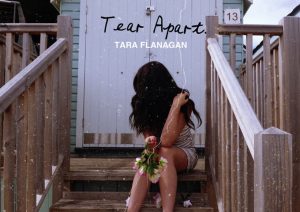
Bartosz Lasecki – “Bricolage”
At a very young age Bartosz Lasecki, a New York City based composer, guitarist, orchestrator and producer began his classical guitar studies with Tali Roth of the Juilliard School of Music and participated in many masterclasses, music festivals, lectures as well as assisting at a recording studio with projects for Film and TV. In addition to his classical guitar studies, he attended the Mannes Pre-College program where he studied Composition and Music Theory, and is currently attending Mannes The New School for Music studying Composition and Music Theory under David Tcimpidis and David T. Little. Called “a performer of uncommon communicative gifts”, Lasecki has been influenced by composers such as Claude Debussy, Bela Bartok, Krzysztof Penderecki, Steve Reich, John Williams and Alexandre Desplat.
 From vinyl records to cassette tapes, CDs, MP3 players and streaming services, the way we acquire the musical experience has rapidly evolved over the years. Music is a fundamental part of our evolution; though only a portion of people may play music, most can, and do, at least sing or hum a tune.
From vinyl records to cassette tapes, CDs, MP3 players and streaming services, the way we acquire the musical experience has rapidly evolved over the years. Music is a fundamental part of our evolution; though only a portion of people may play music, most can, and do, at least sing or hum a tune.
Music is like breathing—all pervasive. It is a core human experience and a generative process that reflects cognitive capabilities. Moreover, music is rich in information processing as we work to appreciate the subtleties of beat, form, melody, and harmony.
Our ways of hearing and responding to music are steeped in the direct exposure to, and expectations about, sound and meaning, as well as music and context. As well as providing a basis for understanding musical expression, context also affords an anchor with which to develop memories and expectancies about the music we are listening to. Moreover, the affective and intellectual complexity of the musical experience speaks to the underlying neurological structures in place to ensure human appreciation for music.
The ‘guided’ musical experience delivers instrumental music together with lyrics – spoken or sung – in support of ‘literally’ understanding what the composed musical piece is trying to communicate. Instrumental music, on the other hand is as such ‘unguided’ as it leaves the listener with a ‘liberal’ interpretation, influenced only by the emotive and image-inducing qualities of sound.
Bartosz Lasecki with his composition, “Bricolage” intends to create what he explains as “clarity of understanding of the whole composition in its entirety”, and where the track may “reveal the composition to have both the surrealistic feeling and concrete meaning.”
“Bricolage” is my first attempt at a style that I believe has never been achieved, which combines musical, poetical and emotional clarity of understanding,” explains Lasecki. “The piece uses many sounds we hear almost every day. But the underlying rhythm of the whole piece uses Morse code to depict that the inclusion of literal meanings in a musical format is possible. Without interfering with the traditional experience of just simply listening, my composition gives concrete meaning to musical ideas for the ones who are looking for it. The ones who are not particularly interested in that sort of approach can simply disregard it and enjoy the music, which is the main reason why it was created,” he finishes.
 I personally do not understand Morse code, neither do I particularly look for literal meanings in music. So I disregarded the small-talk and spent in excess of 12 minutes searching for emotional stimulation and mental imagery with the duration of “Bricolage”.
I personally do not understand Morse code, neither do I particularly look for literal meanings in music. So I disregarded the small-talk and spent in excess of 12 minutes searching for emotional stimulation and mental imagery with the duration of “Bricolage”.
The result was similar to experiences I’ve had on the odd occasion with progressive geniuses like Steve Roach, Brian Eno and Philip Glass. Depending on how you approach their creations, they can become pretty intimidating for a new listener.
If however you let yourself go along with the sonic tapestries of “Bricolage” they will weave themselves into the very core of your being which will leave you speechless and in a state of profound thought.
Regardless of the imagery this music brings to light in your mind – and clearly each one us will have his or her own variant, unless you can unravel Morse code of course – brilliant is a being that can capture and understand such a marvelous concept on so many levels and express it by means of sound, in a musical form, such as “Bricolage”.
I cannot yet be entirely sure, until I’ve unraveled the Morse code in the song, but offhand, I have the distinct feeling that “Bricolage” may be a monumental landmark in the area of cognitive creation and interpretation of music.
OFFICIAL LINKS: WEBSITE – INSTAGRAM – YOUTUBE – TIDAL – SPOTIFY – ITUNES


